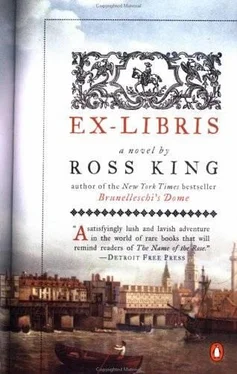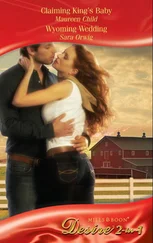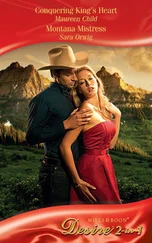The premises otherwise seemed empty except for the young ladies who peered at us from their curtained-off rooms.
Yes, I told myself as I lay down on the bed: I would be safe here. All the same, I removed the firelock from my book bag and set it beside the bed.
***
I fell asleep almost immediately and didn't wake until early evening, by which time the first yellow lights were kindling on London Bridge. My fob-watch informed me I had slept for almost ten hours.
I rolled out of bed and, still befuddled by sleep, withdrew two small vials from my bag: two of the three purchases I had made before renting the room. Inside the first vial was a decoction of bramble leaves bought from an apothecary named Foskett, who informed me how the preparation, created in his own laboratory, was a superb remedy for sores in the mouth or else those on what he winked and called the 'secret parts'. I winked back at him, winced emphatically, and allowed him to believe what he wished.
After bringing a kettle of water to the boil I poured the decoction of bramble leaves inside, stirred it, then mixed in those of the second vial, three grams of lye purchased in the same shop. I was fully awake now, hands trembling as I replaced the caps. When the mixture had cooled I poured it into the washbasin and used it to drench my hair, my beard and even my eyebrows. Whether he knew it or not, Foskett's preparation did more than heal venereal complaints. The shaving-glass confirmed that both my hair and my beard had turned from a greying brown to jet-black. For good measure I trimmed my beard into a sharp point, in the fashion favoured by Cavaliers.
I then turned to my last purchase of the morning, a suit of clothes from a haberdasher in Whitefriars Street. I folded and tucked away my sober bookseller costume-my threadbare doublet, my breeches with their seat worn almost through, my laddered stockings-and donned the new suit, piece by piece. First a gold-buttoned purple surcoat; then a pair of beribboned breeches with matching silk stockings; finally a black velvet hat with a dangling purple ribbon and a cocked brim. I would be conspicuous enough, to be sure, but not recognisable by anyone-scarcely even by myself-as Isaac Inchbold. No, I thought as I inspected the image given back by the darkened window: no one would know me as I went about my business tonight.
Satisfied with these effects, I sent for my supper. A short time later it was delivered to the room by one of the so-called chambermaids, a big-hipped, damask-cheeked girl with a country accent. She placed it on the table, accepted a tuppence and my thanks in return, then made her discreet exit without so much as a glance in my direction. The meal, fried haddock and parsnips, was quite tasty, and I ate with a great appetite. I also consumed with relish a cup of double ale. A few minutes later I was descending the staircase with the pistol tucked into the waistband of my new breeches.
At this hour the Half Moon was filling with patrons whose harsh laughter, interspersed with the shrieks of a fiddle, drifted up the stairs. The creaking treads attracted the attention of a couple of the residents in the curtained rooms whose disembodied faces, also plump and damask-cheeked, emerged from the folds of the curtains, or whose curtains had been drawn back to reveal candlelit rooms with looking-glasses and vases of bright flowers. Smells of perfume and tobacco smoke wafted towards me, followed by a few muffled chuckles. I ducked my behatted head, but not before catching another snatch of my reflection in one of the looking-glasses: a black-haired bravo with his buttons glinting and his hat tipped at a rakish angle. Only my trusty thorn-stick-which I had been loath to abandon-proclaimed my former identity. Later I would wonder at the concatenation of strange events that had fetched me up here, but for the moment I didn't stop to ponder how it had come to pass that I, a law-abiding citizen, a humble bookseller, should now be descending the steps of a brothel in the middle of Alsatia, at nightfall, in disguise.
The sky had darkened by the time I emerged into Abbey Court. I looked round for a moment, taking my bearings from a sun-faded signpost on the corner, before walking north towards Fleet Street. On the way I passed Arrowsmith Court and through its narrow opening caught a glimpse of the Turk's grisly visage leering back at me. The windows of the Saracen's Head glowed orange, but those in Dr. Pickvance's rooms were shuttered and dark. I kept walking north, the firelock chafing at my thigh and poking my hip. Across the ditch, in Blackfriars, lines of washing hung between the newly built tenements, pale swallowtails of smocks and shifts, like the bunting from some vanished procession. In Whitefriars Street a fox darted across my path, snout lowered, brush raised. It seemed an omen of some sort, as did the snatch of boldly chalked graffiti I saw, seconds later, on a collapsing hoarding: the same symbol-the horned man-that I had seen twice, also in Alsatia. Except that it wasn't a horned man or the devil, I suddenly realised, but a man in a winged hat. For the mark was not only the alchemical symbol for quicksilver, I knew, but also the astrological symbol for the planet Mercury.
I almost dismissed the sign and resumed walking. After all, our city was full of charlatans casting horoscopes and scribbling prophecies. Indeed, the newssheets were full of accounts of King Charles consulting our most famous astrologer, the great Elias Ashmole, to cast a horoscope to determine the most auspicious date for the sitting of Parliament. But then I recalled that Mercury, the messenger of the gods, the patron of merchants and traders such as myself, was the name given by the Romans to Hermes Trismegistus. And Hermes Trismegistus was the author of the Corpus hermeticum , in which was found, of course, The Labyrinth of the World .
I stood before the hoarding, staring as if spell-stopped at the brief scrawl. Was this some kind of grotesque hoax? A coincidence? A clue? Like all else I had discovered, it seemed impossible to interpret.
I turned round and began walking rapidly northwards, the balls of lead clattering in the pocket of my breeches. The breeze had strengthened, and coal-ash dashed in a quick gust across the cobbles, stinging my cheeks. I quickened my pace. A minute later Fleet Street opened before me, and I raised an arm to hail an empty hackney-coach.
Once again my destination was St. Olave's, through whose gate I stepped, some thirty minutes later, to find the churchyard empty except for a single mourner at the far end, nearest Seething Lane, and a sexton digging a fresh grave by lamplight. The mourner, his back turned, seemed not to notice me; nor did the sexton, the top of whose head was barely visible above the lip of the grave. His spade was rasping in the wet London clay and chiming whenever the metal struck a stone.
I had no message to leave for Alethea. Earlier, as I ate my supper in the Half Moon, I debated whether or not I should tell her how my shop had twice been invaded by persons unknown and that I had therefore left Nonsuch House in fear of my safety. But in the end I decided not to. Alethea, like Biddulph, entertained quite enough wild fancies without needing further ones added to them. I also decided not to tell her of my residence at the Half Moon.
Although I had been instructed to check the strongbox each evening, I had yet to receive a letter from Alethea via this means, and so I was surprised and even a little gratified to find a piece of paper inside it. I sprang open its lock, as quietly as possible so as not to alert the mourner, who seemed to be studying Seething Lane, as if waiting for someone to come through its gate and into the churchyard. I angled the paper into the light of the grave-digger's flickering lantern and began reading what proved to be the information that I had been waiting for these past few days. Preparations for my journey, she wrote, were now complete. A coach-and-four would be waiting for me at the Three Pigeons in High Holborn the next morning at seven o'clock. Her name was signed with a flourish at the bottom.
Читать дальше












